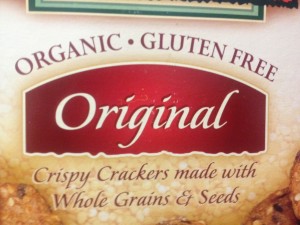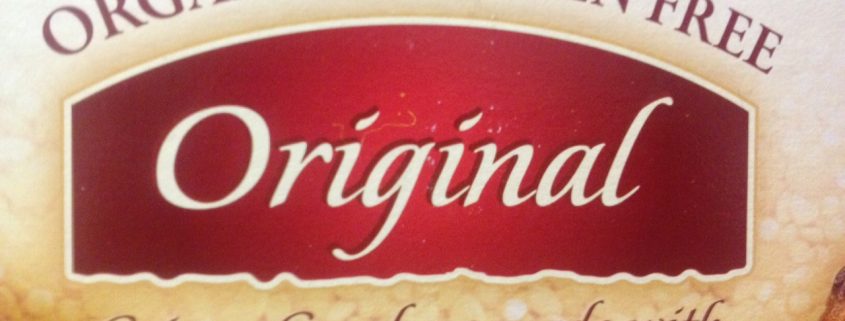Celiac Awareness Month
 The National Foundation of Celiac Awareness has designated May as Celiac Awareness Month to educate and bring awareness to people about celiac disease. You may have become familiar with the “gluten-free” label that appears on products in supermarkets. The fact that gluten-free lifestyles are permeating our culture have made many people think that this is another diet to try to lose weight, rather than a necessary dietary precaution for those battling gluten intolerance or celiac disease.
The National Foundation of Celiac Awareness has designated May as Celiac Awareness Month to educate and bring awareness to people about celiac disease. You may have become familiar with the “gluten-free” label that appears on products in supermarkets. The fact that gluten-free lifestyles are permeating our culture have made many people think that this is another diet to try to lose weight, rather than a necessary dietary precaution for those battling gluten intolerance or celiac disease.
The labeling and discussion of gluten-free lifestyles in our culture are helpful for those with gluten intolerance or celiac disease, a digestive condition that is triggered by the consumption of the protein gluten. The treatment for celiac disease is to follow a gluten-free eating plan for life. Gluten is found in foods that contain wheat, barley or rye, such as breads, pasta, cookies, pizza crust and many other foods that contain gluten in “hidden” forms such as certain salad dressings and preservatives in packaged foods.
So why is gluten harmful to those with celiac disease? When people with celiac disease ingest gluten, an immune reaction occurs damaging the villi of the small intestines. Villi are hair-like projections in the small intestine responsible for the absorption of nutrients into the bloodstream. Damage to the villi leads to malabsorption of nutrients. Common symptoms of celiac disease include diarrhea, bloating, gas, constipation, fatigue, joint pain and abdominal pain. Symptoms vary from person to person and some may experience no symptoms at all, which makes the disease difficult to diagnose.
Celiac disease affects 1 in 133 Americans and research shows that 18 million Americans have non-celiac gluten sensitivity. These are the individuals that experience symptoms when eating foods containing gluten, but whom lack the intestinal damage seen in those with celiac disease.
If you are experiencing symptoms that resemble celiac disease or non-celiac gluten sensitivity, see your physician for proper diagnostic testing before eliminating gluten from your diet. If you are diagnosed with celiac disease, grains such as quinoa, teff and millet are gluten-free and are beneficial to your health. Restaurants are becoming more aware and are educating chefs on finding alternate ingredients to substitute to make a dish gluten-free. With all of the gluten-free products on the market, it isn’t difficult to eliminate or cut back on gluten without sacrificing the healthy foods you love, IF you have celiac disease.
Your turn to take action: Have you ever tried going gluten-free as a weight loss technique? What were the results?


Thank you so much for sharing this! it’s refreshing to see that something that has been ‘prettied’ up as a diet fad is in fact for many people a condition that affects their health. I think if people spent more time on eating healthily and in moderation in stead of focusing on diet fads – they would feel better.
Of course, for anyone who can relate to your post, I feel that they will have the courage to discuss further with a qualified health practitioner thanks to reading this 🙂 Great post!
Thank you Dawn.
No. I’ve never had a food intollerance. But my daughter couldn’t eat wheat last time I saw her, five years ago. I don’t know if she developed it recently or if she had it all along. It’s quite tricky to work out what to feed someone with this condition when you don’t know what to plan.
Francene, is it just wheat, or all grains containing gluten? If it’s only wheat, then there are loads of wonderful grains such as quinoa, brown rice, millet, that she might enjoy. Gluten can be a little trickier because it is present in many foods besides the obvious. The supermarkets now have lots of great options too.
Thank you for raising awareness about Celiac’s disease and gluten sensitivities. A few months ago I became aware that I was gluten sensitive and it’s been a life changing and dramatic lifestyle change. I’ve lost weight and loads of inflammation, some of which I wasn’t aware was actually inflammation. My health has significantly improved and gets better every day. It’s amazing how much a difference going gluten free has made in my life. I’ll never go back.
That’s great Jocelyn. What a feeling when you finally make the connection. Thanks for sharing.